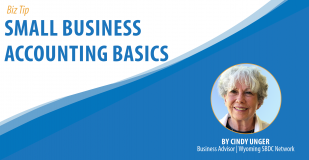Inadequate cash flow management can cripple a small business and is one of the major causes of small business or start-up business failure. Here are seven tips to avoid cash flow problems at your small business.
- Plan Appropriately and Plan Often
The real key to avoiding a cash flow crisis is to do the appropriate planning and do it consistently. To accomplish this, a business owner must review their profit and loss statements as well as any other non-operational items or circumstances that specifically affect cash flow.
- Open Your Monthly Bank Statements
Compare cash balances at the beginning and end of the month. If the end of the month cash balance is higher, the business is cash flow positive. If the end of month balance is lower than at the beginning of the month, the business is cash flow negative.
- Learn to Read Cash Flow Statements
Don’t ignore your bookkeeping. By definition, cash flow is typically your monthly profit, plus the change in accounts payable, the change in accounts receivable, and the change in inventory. The higher this number is monthly, the healthier your business will be.
- Collect Account Receivables Faster
The sooner a customer pays, the higher the cash flow amount for your business. Determine your current Days Sales Outstanding (DSO) and evaluate if that current time frame is working for your business. Don’t extend credit to customers that haven’t proven they can pay in a timely manner. Better yet, get your customers to pay with a credit card or prepay for your services.
- Get Longer Terms From Vendors
Extended credit from your vendors will increase your available cash. Always pay within the agreed period of time. However, if you have 30 day terms, try to get 45 days by building up a reliable track record of payment.
- Sell Inventory Faster and Keep Inventory Levels Low
Buying inventory that sits for months on your shelf waiting for customer orders can take a lot of cash out of the business. Track your inventory carefully. Know what sells quickly and what doesn’t. Know how long your customers will wait for a product and still be satisfied. This will determine how to set efficient inventory and quantity reorder points.
- Avoid Filing Delays in Deposits of Payroll or Other Taxes
Filing delays in deposits of payroll and other taxes should be avoided at all costs. The penalties can be severe. Paying taxes must come first!
Help is available
Utilizing these tips will not only help you manage your cash flow, they will also help you to take another big step toward business success. If you’d like to learn more and start managing your cash flow more efficiently, contact your Wyoming SBDC Network advisor for no-cost, confidential, advising and assistance. Get started today!






